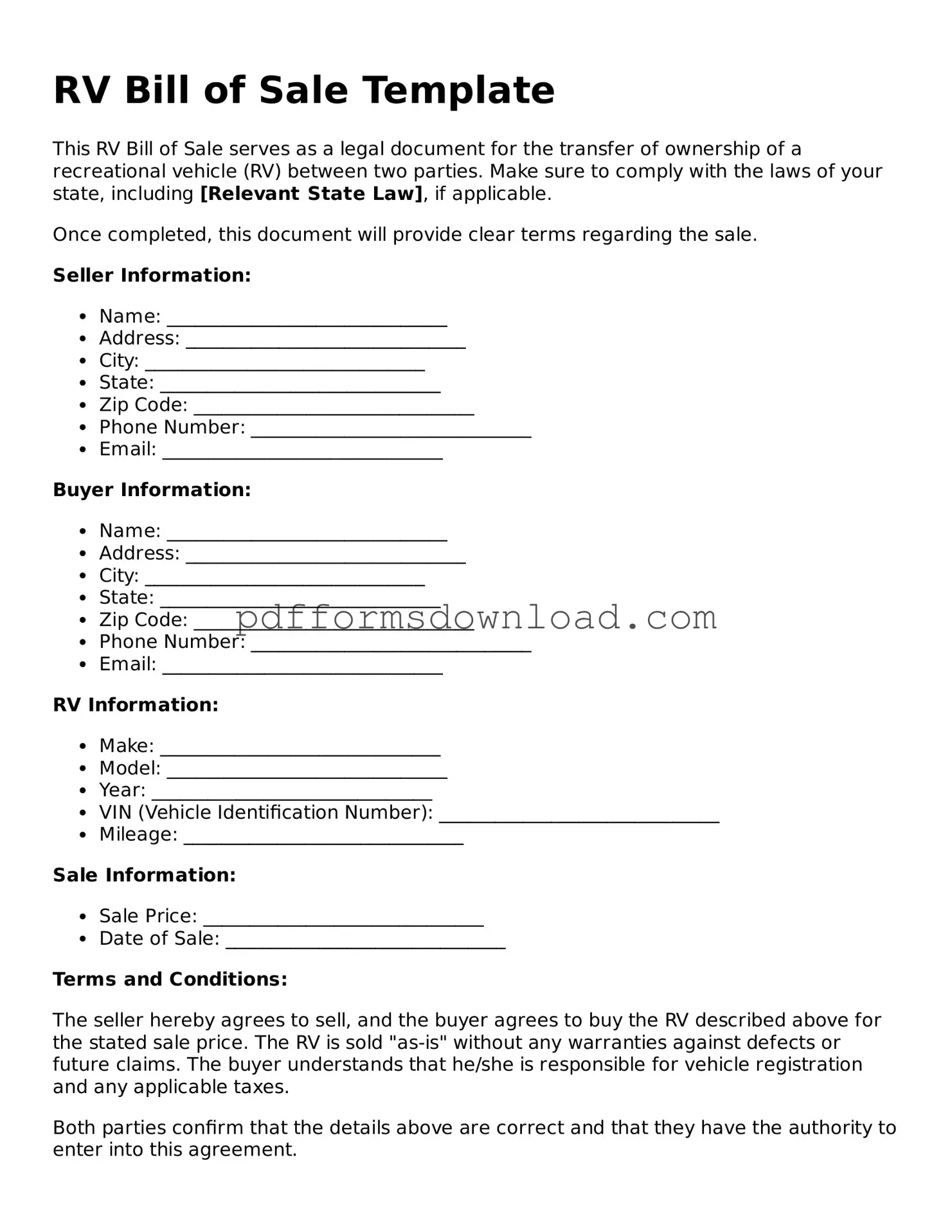What is an RV Bill of Sale?
An RV Bill of Sale is a legal document that records the sale of a recreational vehicle (RV) from one party to another. It serves as proof of the transaction and outlines important details about the sale, such as the vehicle's make, model, year, and VIN (Vehicle Identification Number). This document is essential for both the buyer and seller, as it protects their rights and provides a clear record of the transfer of ownership.
Why do I need an RV Bill of Sale?
You need an RV Bill of Sale to ensure a smooth transfer of ownership. It protects both the buyer and seller by documenting the details of the transaction. For the buyer, it serves as proof of ownership and may be required for registration and titling purposes. For the seller, it can help establish that they are no longer responsible for the RV after the sale.
What information is included in an RV Bill of Sale?
An RV Bill of Sale typically includes the following information: the names and addresses of the buyer and seller, the RV's make, model, year, VIN, odometer reading, sale price, and the date of the transaction. Additionally, it may contain any warranties or representations made by the seller regarding the condition of the RV.
Is an RV Bill of Sale required by law?
While an RV Bill of Sale is not always legally required, it is highly recommended. Some states may require it for registration or titling purposes. Check your state's regulations to determine if a Bill of Sale is necessary for your specific situation. Even if not required, having one can help avoid disputes in the future.
Can I create my own RV Bill of Sale?
Yes, you can create your own RV Bill of Sale. Many templates are available online that can guide you in drafting a comprehensive document. Ensure that you include all necessary information and that both parties sign the document. Alternatively, you can consult with a legal professional to ensure that your Bill of Sale meets all legal requirements.
What should I do after completing the RV Bill of Sale?
After completing the RV Bill of Sale, both the buyer and seller should keep a copy for their records. The buyer should take the document to their local Department of Motor Vehicles (DMV) or relevant agency to register the RV in their name. The seller should also notify their insurance company to remove the RV from their policy.
What if there are issues after the sale?
If issues arise after the sale, such as disputes over the condition of the RV or failure to transfer ownership, the RV Bill of Sale can serve as a key piece of evidence. It outlines the terms agreed upon by both parties and can help resolve conflicts. If necessary, legal advice may be sought to address any disputes that cannot be settled amicably.

